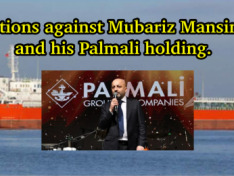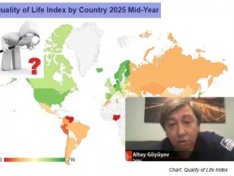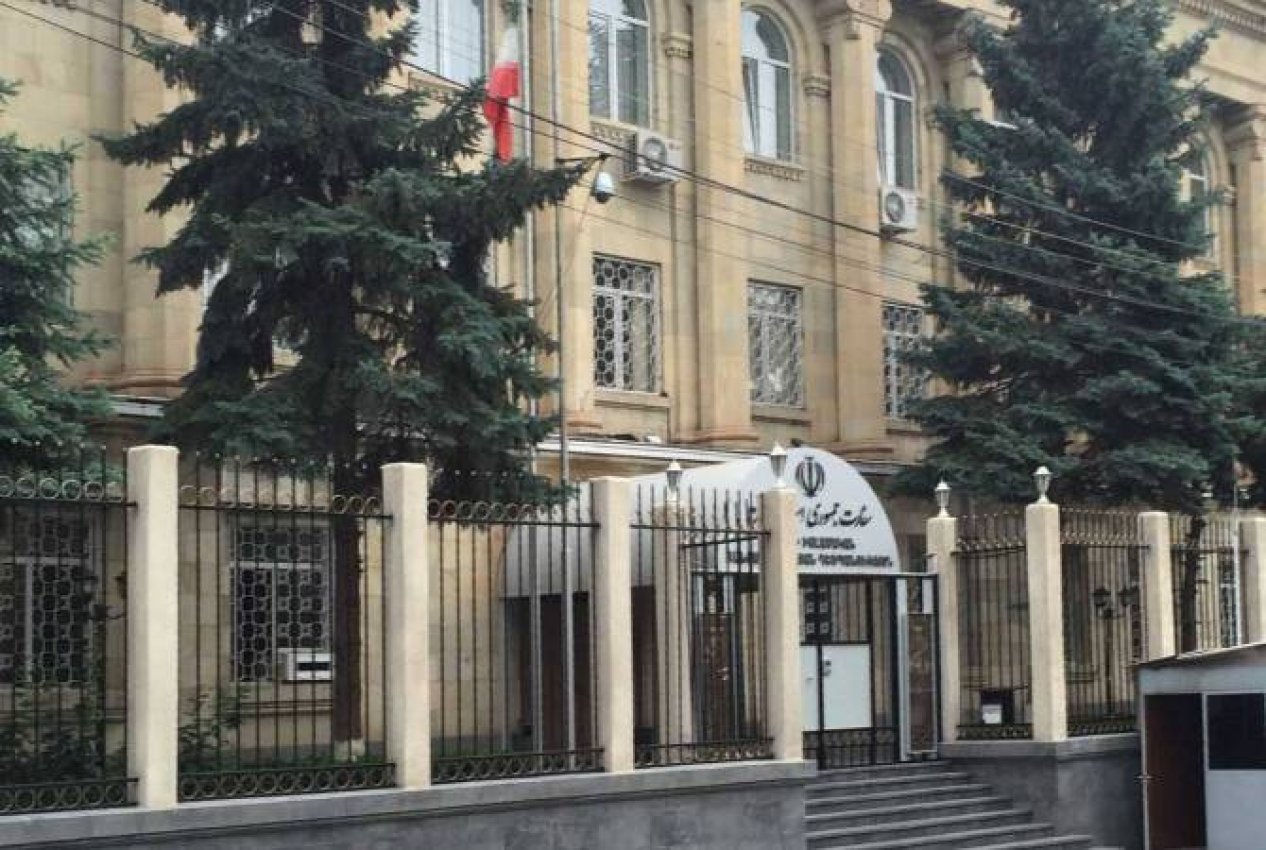
The Embassy of Iran in Armenia responded to Azerbaijani President Ilham Aliyev’s accusations made during the latest CIS summit that “Armenia and Iran colluded and used the Nagorno Karabakh territory for drug trafficking into Europe.”
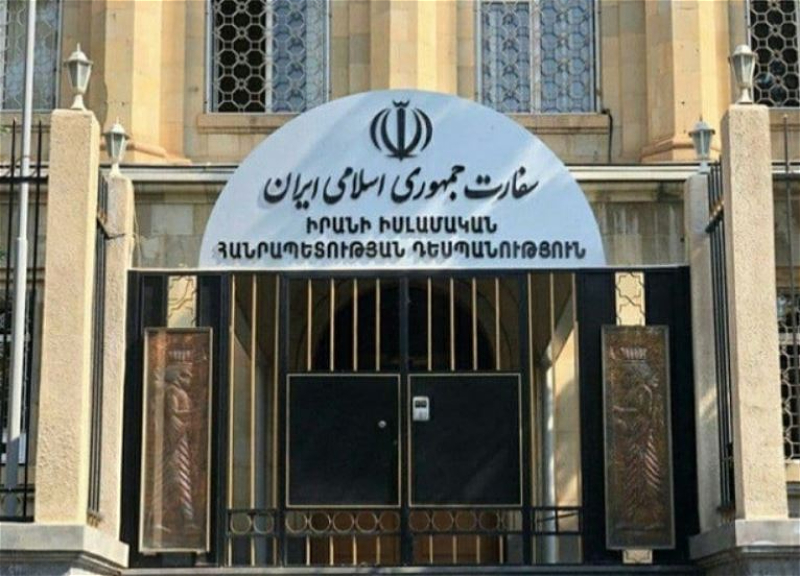
In response to an inquiry from “Armenpress”, the embassy noted that many countries are actually unaware of Iran’s large-scale fight against drug trafficking. In 2021, despite the economic sanctions-related problems, Iran’s fight against drug trafficking – which requires huge expenses – recorded greater results, the embassy said.
The embassy responded to the statement of Ilham Aliyev, made at the meeting of the Council of CIS Heads of State.
“Over the past year, after Azerbaijan had regained control over the 130-kilometer section of the state border with Iran which was under the control of Armenia for about 30 years and thereby blocked a drug trafficking route from Iran through Jabrayil district of Azerbaijan to Armenia and further to Europe, the volume of heroin we have seized on other sections of the Azerbaijani-Iranian border has doubled compared to the same period of previous years. This suggests that for about 30 years, Armenia, in collusion with Iran, used the occupied territories of Azerbaijan to carry out drug trafficking to Europe,” Ilham Aliyev said.
Faktyoxla Lab. has tried to understand the excuses of the Iranian side and the accusations voiced by Baku.
No one denies that Iran is trying to fight drug trafficking from Afghanistan and to a certain extent is reducing the flow to Europe. The world’s most opiate seizures were in Afghanistan, Iran and Pakistan, which together accounted for 98 percent of global opium seizures, 97 percent of morphine seizures, and 38 percent of heroin, according to a 2018 report by the UN International Narcotics Control Board. In 2018, a total of 690 tons of opium, 42 tons of morphine and 37 tons of heroin were seized in these countries. The Islamic Republic of Iran accounts for more than half (53 percent) of global opiate seizures in terms of conventional heroin equivalent.
Meanwhile, according to the Russian expert and specialist on the topic of international drug trafficking Oleg Kuznetsov, drug traffic in this country is under the control of the special services.
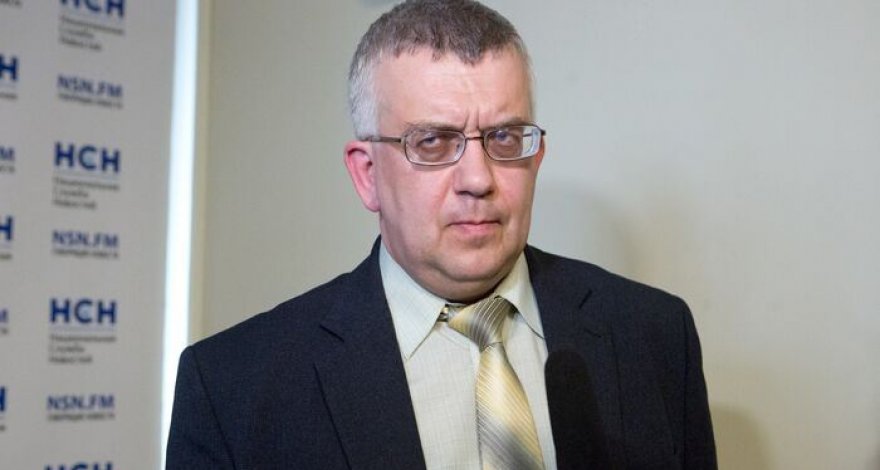
“Such a structure cannot exist illegally forever, so it is either controlled by the state or is in open confrontation with it, as is the case, for example, in Bolivia or Colombia, as well as in the countries of the so-called Golden Triangle in Southeast Asia. As for Iran, I have never heard of an open war between the local regime of mullahs and the drug mafia bosses opposing them, and since this is not the case, the drug traffic is directly or indirectly controlled by the special services of this country. There can be no other options, as was the case with the US occupation forces in Afghanistan, with the connivance of which this country has turned into a world center of raw opium and its derivatives - morphine and heroin. If the situation in reality is exactly as I suppose, Azerbaijan should rely exclusively on itself in the fight against cross-border drug trafficking from Iran,” he said.
After the liberation of the regions bordering with Iran and the blocking of the illegal drug transit routes through the “gray zone,” a great burden falls on the Azerbaijani customs officers and border guards. At the end of September, as a result of measures taken by the customs authorities on three facts, more than 527 kilograms of heroin and 133.4 kilograms of opium were seized.
- 527 kilograms of heroin - on the basis of the information received, an Iranian car was detained at the customs border, transporting a “cargo of chemicals and moisture-absorbing additives” from the Islamic Republic of Iran to the Republic of Latvia;
- 133.4 kilograms of opium - a car traveling through the territory of the Nakhchivan Autonomous Republic was examined by a service dog at a checkpoint on the Shakhtakhti state border. As a result, more than 130 kilograms of opium were found. The cargo was heading to Europe.
On October 12, Azerbaijani border guards prevented the import of almost 102.5 kg of drugs into the country from Iran.
Iranian citizen Shahmoqaddam Jafar Hasan, born in 1988, was detained.
On the same day, a coast guard border ship patrolling in the southern part of the Caspian Sea, near the territorial waters of Iran, found a suspicious package on the water. During the inspection of the package, 47.234 kg of narcotic drugs, psychotropic and potent substances were found and seized.
Drug dealers often demonstrate incredible inventiveness. The following case was recorded in May: Azerbaijani customs officers intercepted a large consignment of potatoes mixed with drugs, transported from Iran to Ukraine.
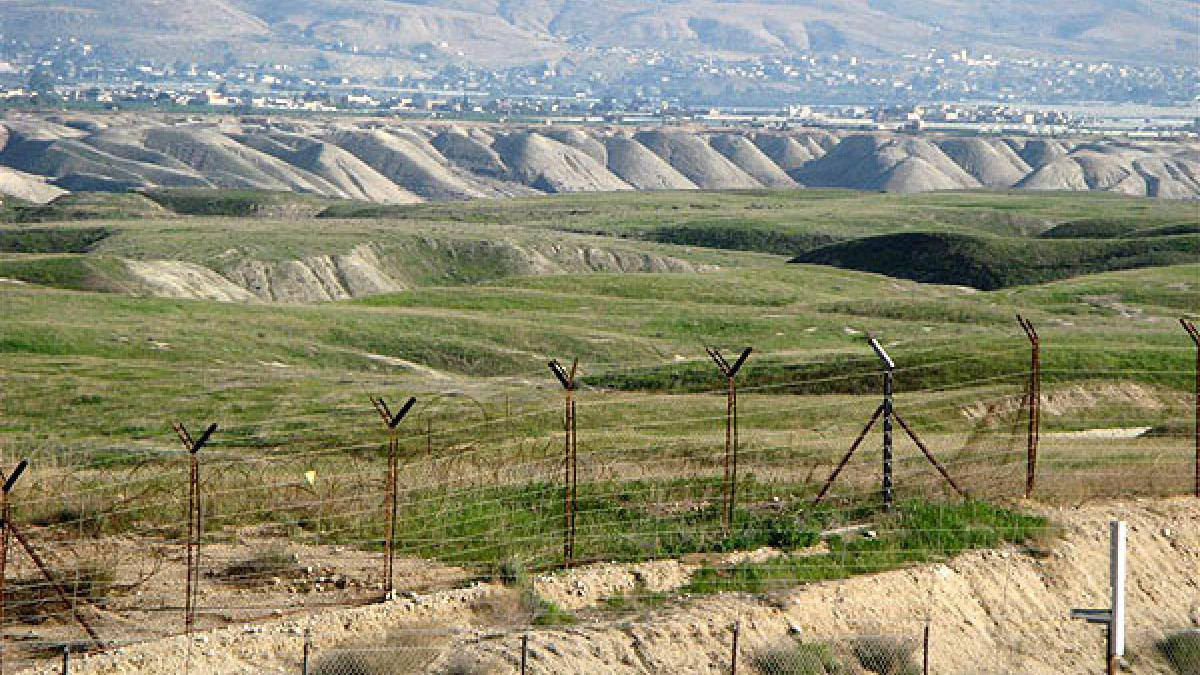
At the Azerbaijani-Iranian border, when employees of the Astara customs station were checking a transit truck carrying potatoes, the trained dogs reacted to the cargo in the trailer. In this regard, the cargo was unloaded from the vehicle for a more thorough inspection. As a result, 962 packages were found in 577 bags of potatoes, packed in such a way that they looked like potato tubers. When checked, the parcels contained heroin with a total weight of more than 213 kilograms.
Meanwhile, in Iran itself, the issue of drug addiction is very acute. As is seen from Wikipedia, the problem with opium in Iran lies in the universal availability of the drug. The country has the highest per capita opium consumption in the world.
In Tehran, 4,000 kg of the drug are consumed daily. 2.8 percent of the country’s population over the age of 15 have used opium at least once. According to the Iranian government, the number of drug addicts in the country exceeds 2 million. Large quantities of opium are brought across the eastern border from Pakistan and Afghanistan from the Golden Crescent plantation. In Iran, more often than in any other country in the world, law enforcement agencies catch drug traffickers, but the government emphasizes that the police intercept only a tiny fraction of the dealers who annually distribute thousands of tons of the drug in the country.
The cheapest opium in the world is sold in Iran. In the city of Zahedan, for example, 3 grams of opium can be purchased for only 10,000 Iranian rials, which is equivalent to $1, and 1 kg of the drug costs $330. In the city of Zabol, opium can be purchased even cheaper: for $1, the addict will receive 5 grams of opium.
It is not surprising that many people began their acquaintance with drugs in Iran.
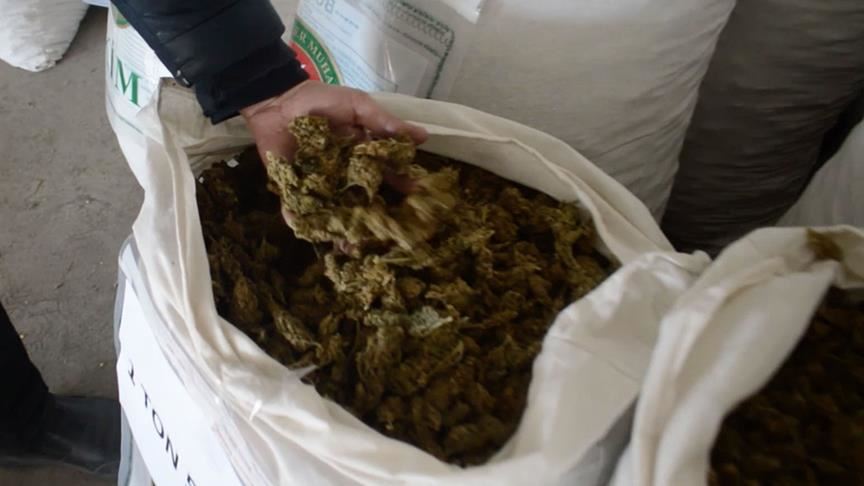
Ehsan, 16, was arrested in Herat, Afghanistan for drug use. Like many others, he started in Iran working as a daily laborer. Then he was deported because he did not have a visa. In a juvenile prison, he will have to stop using drugs, since there is no way to buy them.
Obaid also started drug use in Iran before being deported for illegal stay. The young man says that he is 18 years old, but many underage drug addicts lie about their age in order to go to prison, where they can get adult drugs.
Mahdieh, 9, smokes heroin at least three times a day. The Mahdiye family, who lives on the border with Iran, where half of the opium and heroin trade takes place, can find very cheap heroin.
Let’s remind about the scandal that erupted in January this year, after a member of the Islamic Analytical Center Sheikh Ahmad Jahanbozorgi said on the air of the radio channel that President Hassan Rouhani “sits at his home possibly smoking opium and even his cabinet ministers cannot reach him.”
This statement caused understandable indignation of the Iranian president. His office stated that “President Rouhani has never smoked opium or used any other drugs, and what is said in the program is malicious slander and insult.”
Attention is also drawn to Iran’s attempts to use drug trafficking through its territory to Europe as blackmail.
Iranian authorities warn that the sanctions could result in an increase in the flow of drugs to Europe: the Islamic Republic borders on Afghanistan, the world’s largest producer of the potion. So far, the Iranian special services are trying to put up a reliable barrier. But Tehran says that international pressure could weaken the resolve and desire to serve as a barrier to Afghan drug trafficking.
Fada Hossein Maleki, an Iranian lawmaker and a member of the Iranian parliament's National Security and Foreign Policy Committee, said: “Would Iran use the opportunity to open the way for drugs to Europe if it wanted to? If necessary, yes. Islamic norms do not allow us to do this, the Supreme Leader is against this. But if the situation changes, this can happen, be sure!”
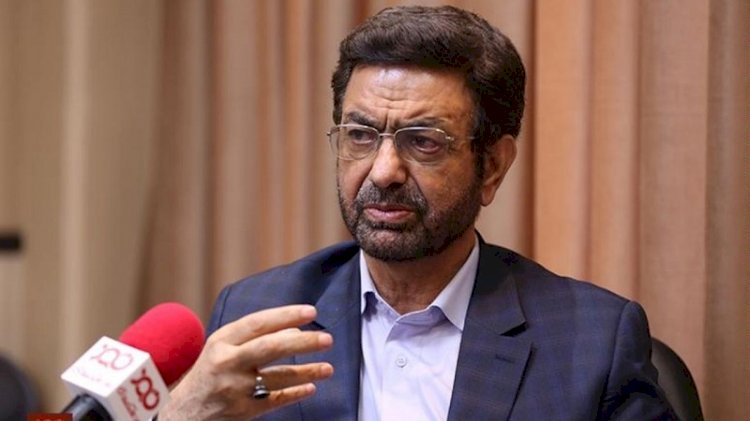
These statements of the Iranian side don’t allow doubting the correctness of the president of Azerbaijan, who stated about drug trafficking by Iran and Armenia through the previously occupied territories. After the liberation of the border areas, many facts were revealed there, confirming the words of Ilham Aliyev.
After the Azerbaijani army liberated the Fuzuli district from occupation, a large plantation of narcotic plants and a laboratory were discovered in the liberated territories of the region.
There is enough information that drugs were delivered to occupied Karabakh from the south for transportation to the west and north. Armenia used the occupied territories not only as a zone for drug trafficking, but also for the production of drugs.
Armenia poses a serious threat to humanity due to the activities of terrorist groups in the previously occupied Azerbaijani lands, the training of terrorists in Nagorno-Karabakh and the cultivation of plantations of narcotic substances. As a result of the occupation of 20 percent of the territory of Azerbaijan by Armenia, its 132-kilometer border turned out to be uncontrolled.
For a long time, Armenian criminals were involved in drug smuggling along the Afghanistan-Iran-Nagorno-Karabakh route.
The lack of control over the occupied territories and the inability of international organizations to take appropriate steps in this direction exacerbate the problem. In addition to Russia and other CIS countries, drugs from the region are supplied to Europe and the US.
In the previously occupied Nagorno-Karabakh, there were laboratories for the production of the most dangerous drugs. According to the study, drug money is used to finance the spread of separatism and terrorism on a wider scale. It is no secret that at the suggestion of Armenia, representatives of the PKK terrorist group used to come to Karabakh from time to time. Also, the terrorist organization ASALA and other groups operated in the previously occupied territories. Terrorists who arrived in the area underwent rehabilitation and training, and then continued their activities in different parts of the world.
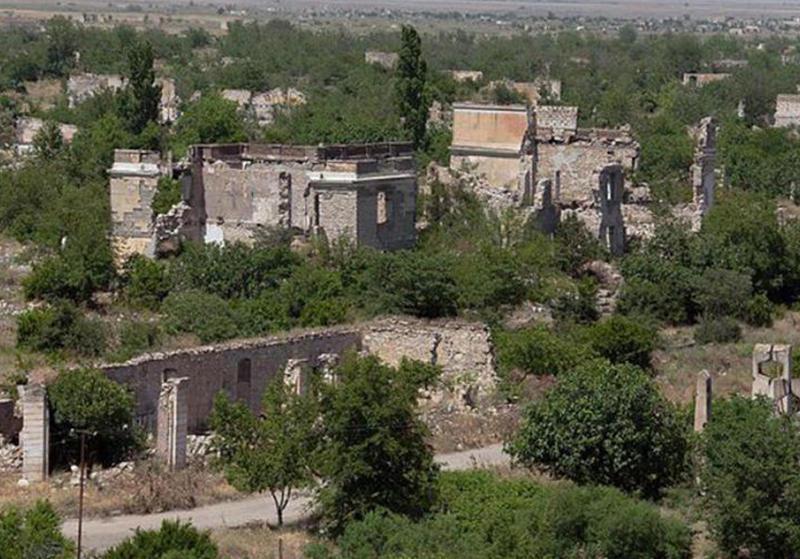
The cultivation, processing and transportation of drugs in areas beyond national and international control have become a problem not only for Azerbaijan, but also for humanity. The proceeds of illicit trade serve to spread separatism and terrorism on a broader scale. The world community needs to take decisive measures against the Armenian aggression, which is extremely important for the security of the world.
Cooperation between Iran and the Armenian occupation forces in the transit of drugs is well described in a book titled Narco Karabakh by researcher and author Harrold Cane. The English version of the book, like its website, is currently no longer available for unknown reasons. But the website 1news.az published chapters from the book translated into Russian.
According to the British researcher, despite numerous efforts aimed at presenting the Islamic Republic as a stronghold of peace and diplomacy, in reality it turns a blind eye to the transit of drugs and weapons across an uncontrolled border with a neighboring state.
As the author writes, the Al Arabiya TV channel reported in June 2017 that “Over the years, the Iranian administration has utilized every form of illegal activity in its bid to break international sanctions, which had been imposed by the UN over its noncompliance to adhere to its international obligations over its clandestine nuclear program, and so with the international illicit drug market estimated at $320 billion annually, the IRGC decided to “dabble”. The Guards know that by using illegal drugs as a tool, turning it into a plague amongst its enemies, it can slaughter more youngsters than it possibly could on the battlefield.” “Over the years, through various sources within the Iranian regime, US government agencies have been able to identify various IRGC commanders involved in this trade. One of these commanders was identified as Abdullah Araqi, the Revolutionary Guard’s Tehran District Commander, who was suspected of colluding with members of the East European underworld, in a bid to set up a drug smuggling network,” Al Arabiya TV noted.
In conclusion, let’s note that in 2012, the US Treasury Department imposed sanctions on the general of the Iranian elite Al-Quds battalion, General Gholamreza Baghbani. The US motivated this decision by the fact that Baghbani allows Afghan smugglers to transport heroin into Iran.
Having considered all the above-mentioned facts, we come to the conclusion that Iran actually doesn’t show much zeal in suppressing drug trafficking and is still trying to use it as a means of blackmail. At the same time, the accusations voiced by the president of Azerbaijan are fully confirmed.


